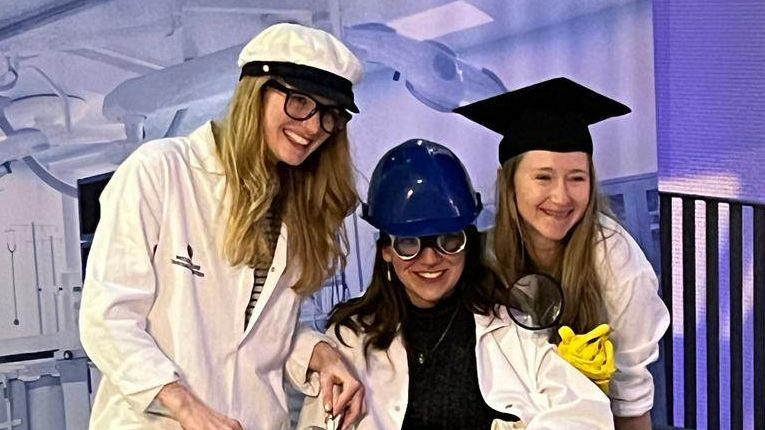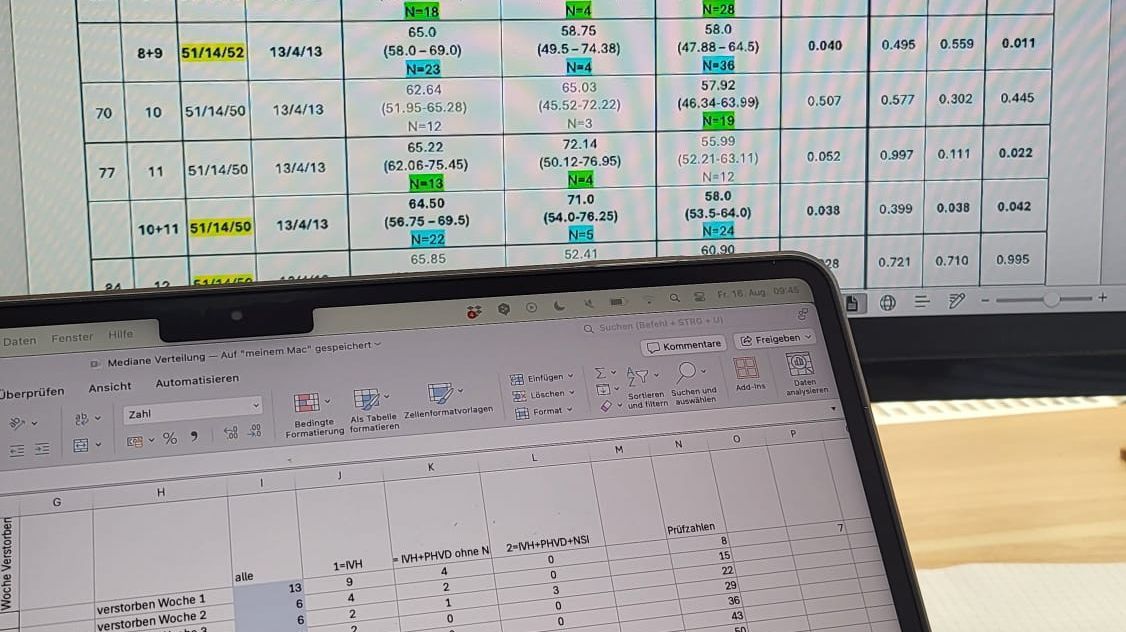by Julia Elis
Photo by: Julia Elis
When I started my PhD program in Vienna about a year ago, everything felt like an exciting adventure. A new city, a new university, and the opportunity to finally contribute to the scientific field I’m so passionate about. However, this adventure also came with challenges that I had to navigate, some of which I was not fully prepared for.
Settling into Life in Vienna

When I received my acceptance letter from the MedUni Wien at the end of January, I was beyond thrilled and eager to start. But as with any exciting new chapter, there were a few hurdles to overcome first. My biggest challenge was finding a flat in Vienna while still abroad and under significant time pressure, as my PhD was set to begin in March.
I spent hours searching websites like Immoscout24, sending inquiries for nearly every flat in my preferred areas. To make the most of my limited time, I scheduled as many viewings as possible within a few days, hoping that one trip to Vienna would be enough to secure a place. Over the course of just four days, I attended 17 viewings — exhausting, but very necessary. In the end, I found a lovely flat near my workplace, which was perfect for keeping my commute short.
The first few weeks in Vienna were a mix of excitement and feeling overwhelmed. I had to get accustomed to a new city and deal with various bureaucratic tasks, like registering with the city, opening an Austrian bank account, and applying for an e-card. But once I got these tasks out of the way, I could focus on enjoying the more pleasant aspects of life in Vienna.
To truly immerse myself in the city and move beyond the feeling of being just a tourist, I made it a priority to explore as much as possible. I took long walks through various districts and, as a dedicated coffee enthusiast (perhaps even a self-proclaimed addict), I visited numerous cafés to discover my favorites—among them Cafemima, Café Delice, and CoffeePirates.
It didn’t take long for me to appreciate Vienna’s unique blend of history, culture, and modernity. Some of my favorite spots include the Prater, which is particularly magical at night; Schönbrunn Palace, perfect for leisurely walks; and the Danube, where you can escape the city's hustle and heat during the summer.
Building Friendships and a Social Network
Like many others, I initially worried about finding friends and not feeling isolated in a new city. Thankfully, those fears were in my case completely unfounded.
The university organized numerous events for new students, which made it easy to meet people your age. Orientation events were particularly helpful, as I connected with other PhD students who were in the same situation, all being new in the city and eager to make new friends.
Connecting with PhD students who had been in the program longer was also incredibly valuable. I got the chance to meet them at the bi-yearly “PhD-Neuroscience Party”, where also the program-coordinator is available to answer questions. Their advice on how to handle the challenges and manage the demanding curriculum was indispensable for me.
Additionally, I joined the “Young Scientist Association,” a student organization that plans and hosts various events, providing the perfect opportunity to meet PhD students outside of my program .
As an active member, I was later involved in the organization of the PhD Symposium (which is by the way a mandatory event for every student once during the PhD) and was responsible for the catering of the event.
As well as improving my organizational skills, I was surprised to learn how much money you can spend on food and drink when ordering for an event as big as that. It was not easy to find a supplier, which met all our criteria’s, but in the end the event was a full success. It felt great to be part of the team and I also made some friends along the way that I might have not met otherwise.
Vienna also offers countless cultural and sports activities that are great for making new friends. For example, I joined a group of students for regular workouts in Arne-Karlsson-Park, organized by Michael Strasser. These activities not only helped me stay fit for free, but also expanded my social network and made me feel more connected to life in Vienna.
Managing workload
Becoming a PhD candidate was a completely new experience for me, as I had previously only been either a student or a co-worker. Suddenly, I found myself not just a student anymore; I had to dive into a new research area while managing the demands of what felt like more than just a full-time job. For this reason, my first year became a delicate balancing act between attending classes, studying for exams, visiting lab courses, and being fully engaged in my research.
It took a while to adjust to these demands, but I quickly realized that effective time management was the key to success. Throughout the year, I learned to set clear priorities and break down what initially seemed like overwhelming tasks into smaller, manageable ones. Regular meetings with my PI were especially helpful, as they provided valuable feedback and helped me to stay on the right path regarding my research.
The support from my peers was equally invaluable. It was incredibly reassuring for me to know that I wasn’t alone in facing these challenges and that many others (basically everyone) were encountering the exact same obstacles as I was.
In addition, I signed up for an internal career for female scientists training, where I learned how to build a strong professional network, improve my self-presentation, and navigate the specific challenges women face in academia.
My first congress: A milestone
One of the highlights of my first year was attending my first scientific conference, which took place in Rome. The preparation began months in advance, as I needed to submit an abstract of my research for consideration.
After submitting, it typically takes a few weeks to receive feedback from the committee. In my case, my abstract was accepted, and I was even selected to give an oral presentation, meaning I had the opportunity to present my research on an international stage.
Since I was still so new in my PhD, it made me on the one hand really proud knowing that the research I am doing has such a meaning and on the other hand it made incredible nervous.
Having never attended a conference before, I was naturally a bit anxious. I spent a lot of time refining my slides and double-checking technical details, like the proper formatting of my presentation. I quickly learned that the importance of thoroughly familiarizing myself with the conference program to identify the most relevant talks and workshops as they often take place at the same time.
At the conference, I started off feeling tense, but the inspiring atmosphere soon put me at ease. I seized the opportunity to network with other researchers, receive valuable feedback on my work, and gather new ideas for my research. Meeting leading scientists in my field and speaking with them directly was particularly memorable.
My Research Focus
My primary research focus is on studying premature infants affected by intraventricular hemorrhage and its associated complication, posthemorrhagic ventricular dilatation, with an emphasis on predicting their neurodevelopmental outcomes.
My relationship with my PhD could be described as a love-hate relationship. Some days, there’s nothing but love for the topic I’m so passionate about; on other days, frustration sets in when things don’t go as planned. I’ve had to learn that setbacks are normal and that dealing with the uncertainty of the unknown is part of the process. But when I find new solutions or approaches, the feeling of accomplishment makes it all worth it.
Whats coming next?
Looking back, my first year in the PhD program in Vienna was a period of intense learning and personal growth. The challenges of settling into a new city, building a social network, and meeting academic demands helped me grow not just as a researcher, but also as an individual. I learned the importance of being open to new experiences, staying well-organized, and seeking support from others when needed. With these experiences, I feel well-prepared for the coming year of my doctoral journey. In other words, to be continued...
Follow Julia’s PhD journey next year as she navigates the rewarding and sometimes challenging path of academic research, and shares how it’s going in her second year at MedUni Wien.
If you think a PhD might be the right path for you, keep an eye out for our upcoming PhD calls. Take your first steps towards an exciting research career by applying to us.



